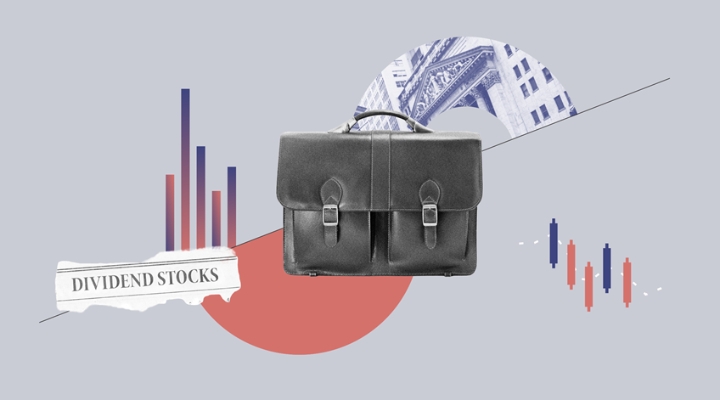Rodney Hobson, an experienced investor and columnist for Morningstar, whose extensive experience in the financial services industry has included positions as Business Editor of The Times and Editor of Hemscott, shares some of his insights and top tips for investors seeking income from stocks in a low-rate environment.

Moving into fixed income when you retire is utterly stupid and the fact that governments may encourage it does not make the move any more sensible.

1. Some of the more traditional methods of generating income, such as developed-world government bonds, have been somewhat undermined by the low interest rate, high inflation environment that we currently find ourselves in. What are the main income-generating channels open to investors?
Equities stand out by a mile as the best investments for income. While it is possible to argue that this is true most of the time, the attraction of equities as opposed to other investments was never greater than now, with poor interest rates and the spectre of inflation undermining rival investments. In the end, equities are the only investment that offers income plus a hedge against inflation.
I would not entirely rule out investing in developed world government bonds.  For instance, quite a number of long dated UK gilts offer yields of more than 4%, which is better in the short term than you will get on most equities. However, they do not give you a hedge against inflation. Shorter term gilts offer higher rates but you will have to pay above par for them so you will be losing a fair slab of your investment when you have to cash them in as they expire.
For instance, quite a number of long dated UK gilts offer yields of more than 4%, which is better in the short term than you will get on most equities. However, they do not give you a hedge against inflation. Shorter term gilts offer higher rates but you will have to pay above par for them so you will be losing a fair slab of your investment when you have to cash them in as they expire.
Similarly, it would not be wrong to buy bonds issued by solid companies although many companies have sensibly reduced their borrowings ahead of the looming rise in interest rates so opportunities may be limited. Interest on bonds ranks ahead of dividends so you are less likely to see your income scrapped in a downturn. You get a higher interest rate than for gilts but again you do not have a hedge against inflation.
One final possibility is buy-to-let, a type of investment that has fallen out of favour in the wake of the credit crunch. As fewer people can obtain mortgages they are forced to rent, which is pushing up rents in major cities. You need to be able to raise a deposit to buy property, which is no mean feat, and be willing to stand the hassle of being a landlord, but as with shares you have income and a hedge against inflation as property prices will rise over time.
2. For an investor looking to build a portfolio for income, or looking to dedicate a portion of their portfolio to income generation, what would you describe as the key guidelines to follow?
You should be looking for solid rather than spectacular investments, those that are boring but worthy. Income investing is for the long term, not quick gains from wheeling and dealing.
Look for companies with progressive dividend policies, that is with a steadily rising dividend each year. It is preferable, but not vital, to pick companies that have paid dividends for at least three, and preferably five, years.
Also check that the dividend is consistently covered at least twice by earnings per share. The occasional lapse is permitted, especially if in one particular year there are large exceptional items, but you want to feel that earnings provide cash for shareholders and a similar amount to invest in the business.
3. When investing in equities for income, which sectors or types of companies tend to offer the most attractive dividends?
Companies and sectors referred to as defensives are generally best--they are the companies producing solid performances, that don’t ride up and down with the economic cycle. Pharmaceuticals and utilities are obvious examples. I would be inclined to add supermarkets (but not most other types of retailers) and oil & gas. If you do not have ethical objections, tobaccos and arms manufacturers can always find customers somewhere in the world.
An alternative is to look at bombed out sectors such as banks and house building and buy on the hope that dividends will be restored soon. This is clearly more speculative and you will be looking to sell at the top of the cycle.
You could build two portfolios, one solid and one more risky. It depends on your financial circumstances.
One important point is that you should be wary of thinking in terms of sectors. Do not overload your portfolio with just one or two sectors as you are putting too many eggs in one basket. Also remember there are great companies and underperforming ones in every sector.
4. What company characteristics and valuation metrics should an investor look for when hunting down reliable dividend-payers?
Look for rising profits, rising earnings per share and rising dividends. The two key ratios are yield and dividend cover. Check that interest payments on debt are well covered by earnings. The price/earnings ratio can alert you to the possibility that a company is under- or overvalued but is less important for dividend investors.
5. What are the tax implications of receiving dividends and how can income-seeking investors manage these?
Make sure you use up your full ISA entitlement every tax year. Dividends are taxed at basic rate of income tax at source so there is no escape from this but at least higher rate taxpayers get some relief in ISAs.
Even if you pay basic rate tax it is worth using your ISA entitlement because your income could rise over the years--especially if your investments do particularly well!
6. Conventional retirement-planning wisdom suggests allocating an increasing portion of your portfolio’s assets to fixed income rather than equities as you move closer to, and further into, retirement. But with retirement now lasting upwards of three decades, thanks to improved longevity, is there a stronger case for continuing to hold equities for both their income and growth benefits?
Moving into fixed income when you retire is utterly stupid and the fact that governments may encourage it does not make the move any more sensible.
Even if you live only 10 years after retiring you will probably go through periods of wildly varying inflation. Fixed income can leave you in dire straits during times of high inflation. Build a sound portfolio of shares over your working life and you can live comfortably in a long retirement.
7. Finally, in order to ensure a well-diversified portfolio to mitigate exposure to certain sector, market or regional risk, how can investors go about seeking dividend exposure beyond UK shores?
While there are plenty of companies listed on the London Stock Exchange you can widen your horizons by investing overseas. The US has the largest economy in the world and also the largest stock market with more than 8,000 companies to choose from. There is a wider range of manufacturing and information technology stocks.
You can invest abroad quite easily. Most online brokers will allow you to buy foreign stocks and although you will pay a little extra you can trade at less than £20 per bargain. You will not have to pay stamp duty on purchases so the total cost may be no greater than investing in the UK.
Stick to well regulated markets and pick well known international companies to be on the safe side. Remember that investments priced in dollars, euros, yen, etc are affected by fluctuations in the sterling exchange rate so income is more prone to swing up and down over a period of time.
A version of this article was originally published in April 2011.





























